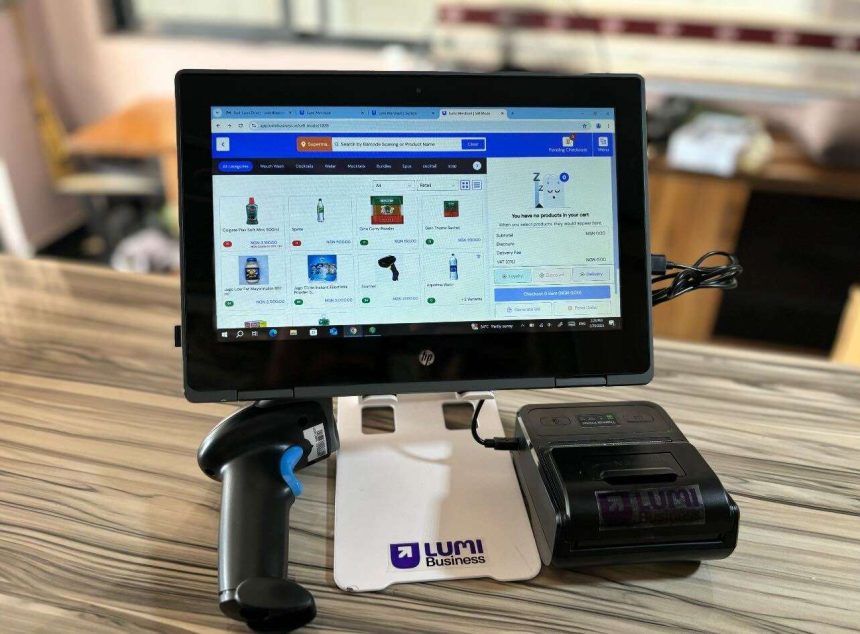In a country where many small businesses still track sales in notebooks and pray for a stable internet, Lumi Business is building something different.
Since launching in 2020, the Lagos-based payment, inventory, and accounting management software startup has been rolling out a suite of tools that allow merchants not just to accept payments, but to run their entire business from a single platform.
And now, with features like Offline Mode and a partnership with food delivery platform Chowdeck, Lumi’s vision of becoming the operating system for African retail is taking shape.
In this article, Techparley correspondent, Quadri Adejumo, explores Lumi Business’s rapid ascent in Nigeria’s retail-tech space, its product depth, market opportunity, and emerging competition.
Building for Reality, Not Just for Connectivity
With over ₦6 billion in monthly transaction volume and 200,000+ monthly sales processed, Lumi is becoming a lifeline for retailers across Nigeria.
“We didn’t set out to build a payments platform with a few extra features. We built the backbone of retail operations. A platform that powers every transaction, every inventory move, every customer interaction. It’s at the heart of the business,” Wale Adeniji, CEO of Lumi Business, said in a report earlier this year.
Recently, Lumi launched its Offline Mode, a feature designed for real-world conditions where patchy network coverage and power outages can stall sales.
“We built Offline Mode with the realities of our merchants in mind. We know internet outages can bring business to a standstill. With this release, we are ensuring that no merchant ever has to lose a sale or pause operations because of poor connectivity,” Adeniji said.
With Offline Mode, merchants can sell products, access pricing, issue receipts, and track stock, even when completely offline. Once connectivity is restored, Lumi syncs every data point to the cloud, with no duplication or loss.
The Tools That Take Your Business Further
Unlike other platforms that specialise in only one function, Lumi offers a complete business operating system built for the daily realities of African SMEs.
What Lumi offers:
- Payment flexibility (mobile, card, transfer)
- Transparent pricing with no hidden charges
- Customer support via phone, chat, email, and forums
- Built-in scalability for businesses with one location or ten
What Comes Next
Currently, Offline Mode is available on Windows-powered devices, with Android and iOS versions in advanced stages of development. Lumi has opened a waitlist for merchants who want early access to the mobile versions.
Businesses interested in testing the feature can contact Lumi’s Customer Success Team to get started or join the rollout programme.
The company is also laying the groundwork for expansion, with pilot programmes and partnerships. Nowhere is this clearer than its integration with Chowdeck, Nigeria’s food delivery platform.
“This partnership is a big step forward in solidifying Lumi Business as the one-stop platform for restaurant owners—bringing sales, inventory, and operations under one smart, seamless system,” Lumi shared on LinkedIn.
A Market Ripe for Transformation
In Nigeria, the informal retail market is estimated to handle over $100 billion in annual transactions, much of it done in cash, and with little visibility into performance metrics or financial history.
That’s where platforms like Lumi Business and others come in, not just to modernise how merchants sell and track inventory, but to lay the foundation for financial inclusion, digital commerce, and formal economic participation.
From Bumpa’s mobile commerce tools to Kippa’s ledger-first approach and Paystack’s digital storefronts, a number of startups are targeting SMEs with fragmented solutions. Global ERP platforms like Zoho and Odoo also offer more complete systems.
Lumi Business may not be the loudest startup in Africa’s retail tech ecosystem, but its platform reflects a deep understanding of what African entrepreneurs need.
According to experts, Lumi is solving the pain points that matter most, while quietly setting the standard for what modern retail software should look like on the continent.





